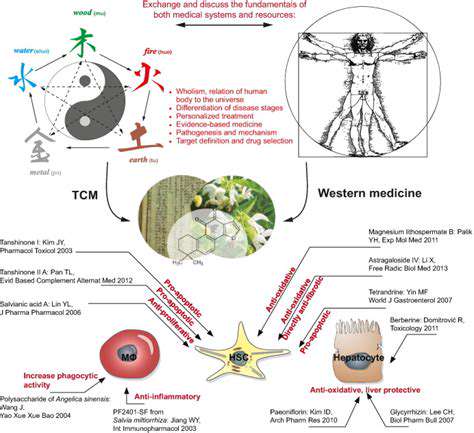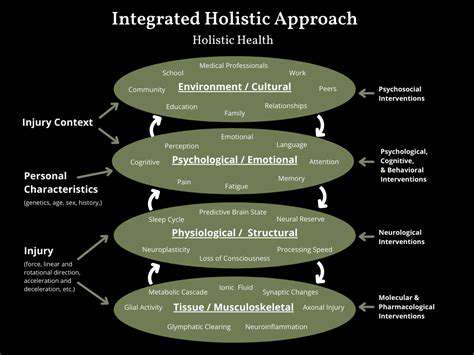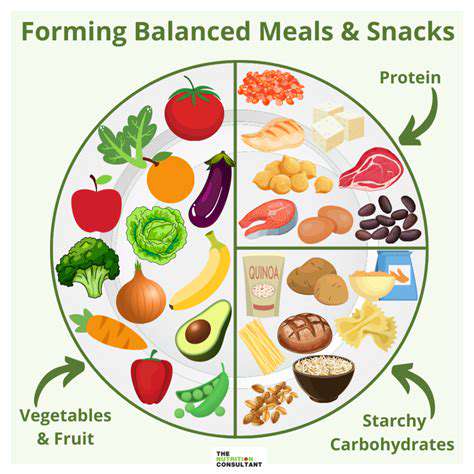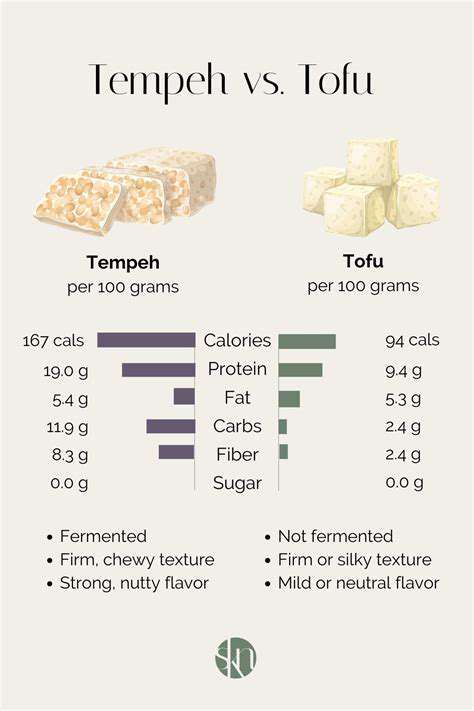Paleo Diet and Autoimmune Conditions: Managing Symptoms
Autoimmune diseases are a group of chronic conditions characterized by the body's immune system mistakenly attacking its own healthy tissues. This can lead to a wide range of symptoms and complications, varying greatly depending on the specific autoimmune disease. Examples include rheumatoid arthritis, lupus, type 1 diabetes, and multiple sclerosis, each with its own unique impact on the body and daily life. These conditions can significantly impair quality of life and require ongoing medical management.
Potential Links Between the Paleo Diet and Autoimmune Diseases
Some studies suggest that the Paleo diet may offer potential benefits for individuals with autoimmune diseases. The elimination of certain foods, like gluten or dairy, which can trigger inflammatory responses in some individuals, might reduce symptoms. Furthermore, the emphasis on whole foods and healthy fats could support overall well-being. However, these are often preliminary findings and more robust, long-term studies are needed.
It's important to acknowledge that the Paleo diet's impact on autoimmune diseases is not yet fully understood. The limited research and the complex nature of these conditions make it difficult to draw definitive conclusions.
Potential Challenges and Considerations
While the Paleo diet may appear appealing, it's crucial to approach it with caution and consideration. Strict adherence to the Paleo diet can be challenging for some individuals, potentially leading to nutritional deficiencies or dietary restrictions that impact overall health. It's essential to consult with a healthcare professional or registered dietitian before making significant dietary changes, especially if you have an autoimmune disease. They can help determine if the Paleo diet is appropriate for your specific needs and health conditions.
Furthermore, the long-term effects of following the Paleo diet are still being studied. The diet's effectiveness and safety for individuals with autoimmune diseases is not yet fully established.
The Importance of Personalized Approaches
The effectiveness of any dietary approach for autoimmune diseases, including the Paleo diet, can vary significantly between individuals. What works for one person may not work for another. The best approach often involves a personalized strategy that takes into account individual health needs, medical history, and specific autoimmune conditions. It's crucial to work closely with healthcare professionals to develop a tailored dietary plan that supports both overall health and disease management.
Ultimately, a balanced and well-rounded approach to nutrition, combined with appropriate medical care, is often the most effective way to manage autoimmune conditions.

Managing Specific Symptoms Through Paleo Diet Strategies
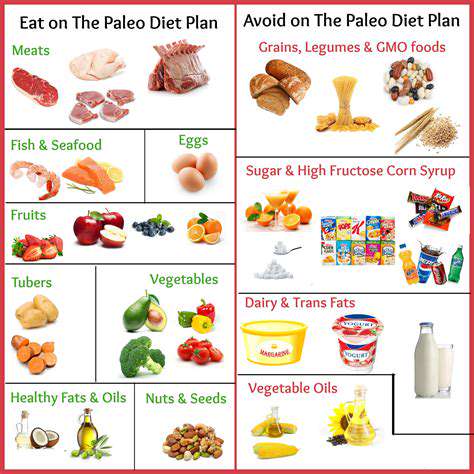
Managing Pain Effectively
Effective pain management involves a multifaceted approach, encompassing both pharmacological and non-pharmacological strategies. Addressing the root cause of the pain, when possible, is crucial. This may involve consulting with healthcare professionals to identify underlying conditions or contributing factors. A personalized treatment plan should be developed, considering individual needs and preferences.
Non-pharmacological methods, such as physical therapy, exercise, and relaxation techniques, often play a significant role in pain management. These methods can help to improve function, reduce inflammation, and promote overall well-being. Regular physical activity can help to strengthen muscles, improve flexibility, and enhance pain tolerance.
Addressing Anxiety and Depression
Anxiety and depression are frequently comorbid with various health conditions, including chronic pain. Recognizing and managing these emotional states is essential for overall well-being and can positively impact pain management. Therapy, including cognitive behavioral therapy (CBT), can help individuals develop coping mechanisms to manage anxiety and depression, leading to a more positive outlook on life.
Support groups and counseling can provide valuable emotional support and guidance in navigating these challenging experiences. Connecting with others who understand similar challenges can foster a sense of community and reduce feelings of isolation.
Improving Sleep Quality
Adequate sleep is vital for physical and mental restoration. Poor sleep quality can exacerbate pain and worsen mood disorders. Establishing a consistent sleep schedule, creating a relaxing bedtime routine, and ensuring a conducive sleep environment are crucial steps toward improving sleep quality. Creating a dark, quiet, and cool bedroom environment is often beneficial.
Managing Fatigue
Fatigue is a common symptom affecting individuals with various health conditions. Strategies for managing fatigue often involve optimizing sleep, pacing activities, and incorporating rest periods throughout the day. Regular exercise and a balanced diet are important factors to consider.
Identifying and addressing potential underlying causes of fatigue, such as anemia, thyroid issues, or other medical conditions, is also essential. Healthcare professionals can provide tailored recommendations based on individual circumstances.
Improving Mobility and Function
Maintaining mobility and function is essential for independent living and overall well-being. Physical therapy, occupational therapy, and assistive devices can help improve mobility and reduce pain. Developing strategies to gradually increase activity levels, while listening to the body's signals, is crucial in preventing further injury.
Regular exercise, tailored to individual capabilities, can significantly improve strength, flexibility, and endurance. Adapting daily routines and environments to accommodate limitations can also enhance independence.
Nutritional Support for Symptom Management
A balanced diet plays a significant role in supporting overall health and can influence symptom management. Consuming nutrient-rich foods can help to reduce inflammation, improve energy levels, and promote healing. Including foods rich in vitamins, minerals, and antioxidants can support the body's natural healing processes.
Hydration is also crucial for various bodily functions and can influence overall well-being. Drinking sufficient amounts of water can aid in digestion, nutrient absorption, and waste removal.



